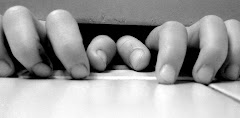 It’s curious how many things that we find thrilling or enjoyable are also quite risky.
It’s curious how many things that we find thrilling or enjoyable are also quite risky. We can enjoy risky activities for one of two reasons:
1) Because of the risk; or,
2) In spite of the risk, that is, because we enjoy an activity that just happens to be risky--the fact it is also risky gives us no additional pleasure or even detracts from the pleasure.
Option (2) is unobjectionable. We experience this kind of pleasure all the time. Eating cake may carry some long-term health risk, but it is unlikely that the pleasure from doing so is enhanced by that knowledge. Therefore the more interesting option is (1). If we do in fact find pleasure in risk, we must further ask:
3) Is risk-taking pleasurable in itself?
4) Or, is it the case that risk-taking is not itself pleasurable but there are other goods that we do seek but are available to us only when risk-taking is involved.
The answer to (3) cannot be yes because we can think of too many risky activities that would bring us little pleasure at all (i.e. injecting oneself with the flu virus). Therefore insofar (1) is true—that we seek out some activities because they are risky—it must be because what we are seeking is not risk itself but something else that is most available to us during risky activities. What, then, do we seek that is most available to us during risk-taking? Honor or pride of overcoming fear or even concern for one’s own being is an obvious possibility. The seeking of honor at the expense of one’s bodily good is described by Hegel and Tocqueville as a noble or aristocratic impulse (as opposed to slavish concern for one’s own being even at the expense of one’s dignity). One can certainly be seeking to prove to oneself one’s own courage, as well as seeking the adulation of others who witness one’s courage. Another possibility is that what one seeks is diversion from one’s drub existence, the thrill of courting death which takes oneself out of one’s present situation, at least for a moment.
Perhaps more interesting yet is the kind of pleasure we receive from the appearance or feeling of something being risky when, in fact, we know we are perfectly safe—for example, watching a scary movie or riding a rollercoaster. Why do we invite fear when, in fact, we know we are safe? The answer to me is far from obvious and seems to invite the possibility that the human personality is bizarrely fractured, requiring a constant internal dialogue between what is real and fiction, and that finally we don’t know. If we really know the characters on the screen are following a script, would we in fact be scared? It’s doubtful. I doubt any of the stagehands who helped make the movie were ever frightened in its filming. Likewise, my guess is that riding a rollercoaster simply feels scary, regardless of our knowledge of its safety or not. What this seems to suggest is that we experience life at the gut level as well as the more-conscious cognitive level, and at least some of our thrills at risk behavior comes from a strong disjunction between the two.








.jpg)




No comments:
Post a Comment